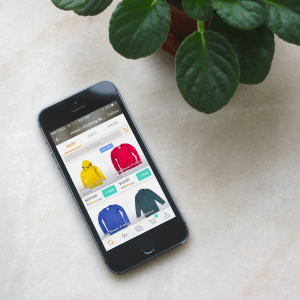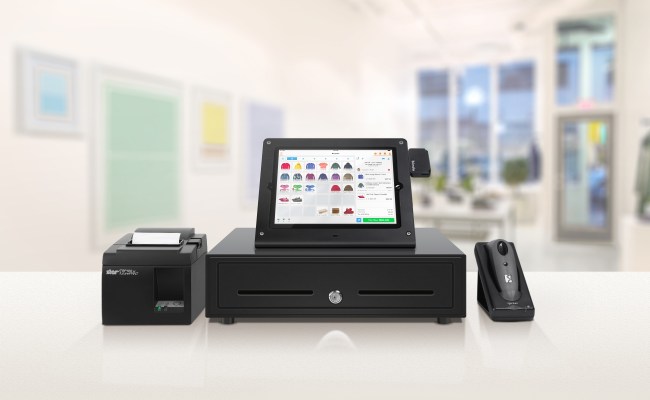The growth of e-commerce behemoths like Amazon and the convenience they offer to shoppers have been especially hard on local brick-and-mortar stores. A startup called Bindo wants to reverse that trend. Headquartered in New York City with offices in Hong Kong, Bindo has created an iPad point-of-sale system that integrates with its cloud-based payment platform for small merchants, with the goal of making it easy for customers to shop online for products carried by stores in their own neighborhoods.
Today the company announced that it has closed a seed round of $1.8 million, co-led by Gary Vaynerchuk, East Ventures, and Metamorphic Venturess.
Bindo says it currently has 180,000 customers who have purchased an item in Manhattan, its test market. Since its beta launch there in March 2013, the startup has processed $40 million in orders. The company plans to gradually roll out their system into new cities and will soon launch Bindo Marketplace, an app that lets all merchants using Bindo’s point-of-sale system sell their merchandise online, allowing customers to have items delivered from local stores or check what’s in stock.
Bindo’s co-founder, Jason Ngan, says that Bindo will use half of its seed funding for development and the other half for sales and marketing.
The company’s competitors include Square, Vend, Lightspeed, and Shopkeep, but Bindo say it wants to differentiate by creating “hyperlocal” marketplaces and creating an online-to-offline network. Vice president of business development Benedict Wong says the startup plans to convince merchants to use their point-of-sale system by showing them data from their beta launch that demonstrates stores can increase their sales by 20% to 30%. Another differentiator is Bindo Marketplace, which Wong says is much more comprehensive than Square Market.
 For customers, Bindo Marketplace will let them see all the stores near them that use the system, their inventories, and allow them to purchase available items immediately. Since customers can easily see what items within a few miles of their homes, that will hopefully make them more likely to buy from local mom-and-pop stores instead of large e-commerce businesses like Amazon.com.
For customers, Bindo Marketplace will let them see all the stores near them that use the system, their inventories, and allow them to purchase available items immediately. Since customers can easily see what items within a few miles of their homes, that will hopefully make them more likely to buy from local mom-and-pop stores instead of large e-commerce businesses like Amazon.com.
For small brick-and-mortar stores, Bindo offers customer-relationship management tools that lets them see what each customer has purchased before.
“In a traditional point-of-sale system, a customer walks into a a store and leaves. The merchant won’t recongize the customer, but Bindo allows merchants to engage with customers after a sale. Bindo captures their name and credit card info, with email receipts, and the CRM lets them send promotional and targeted offers. We trace what customers buy over time and Bindo Marketplace gives vendors e-commerce and mobile commerce capabilities. We turn the point-of-sale system into an online-offline retail platform,” says Wong.
Bindo’s system combines online and offline inventory, which are updated in real-time as purchases are made, so merchants don’t have to manage two systems. The company plans to integrate with backend and logistics companies, so the entire order fulfillment process is automated. Vendors on Bindo can carry out marketing campaigns with other neighborhood stores to increase orders and foot traffic. The startup monetizes through fees for Bindo’s software-as-a-service system, credit card fees, and a small commission on items sold through Bindo marketplace.
“Customers can shop from stores that are close to them instead of Amazon. We’re bringing local stores online and letting people buy from places that they are familiar with but usually can’t shop from online,” says Wong. “Another way of putting it is that Amazon scaled to be more warehoused, while Bindo is crowdsourcing warehouses and investing in small local vendors and letting everyone shop within their own neighborhood.”
